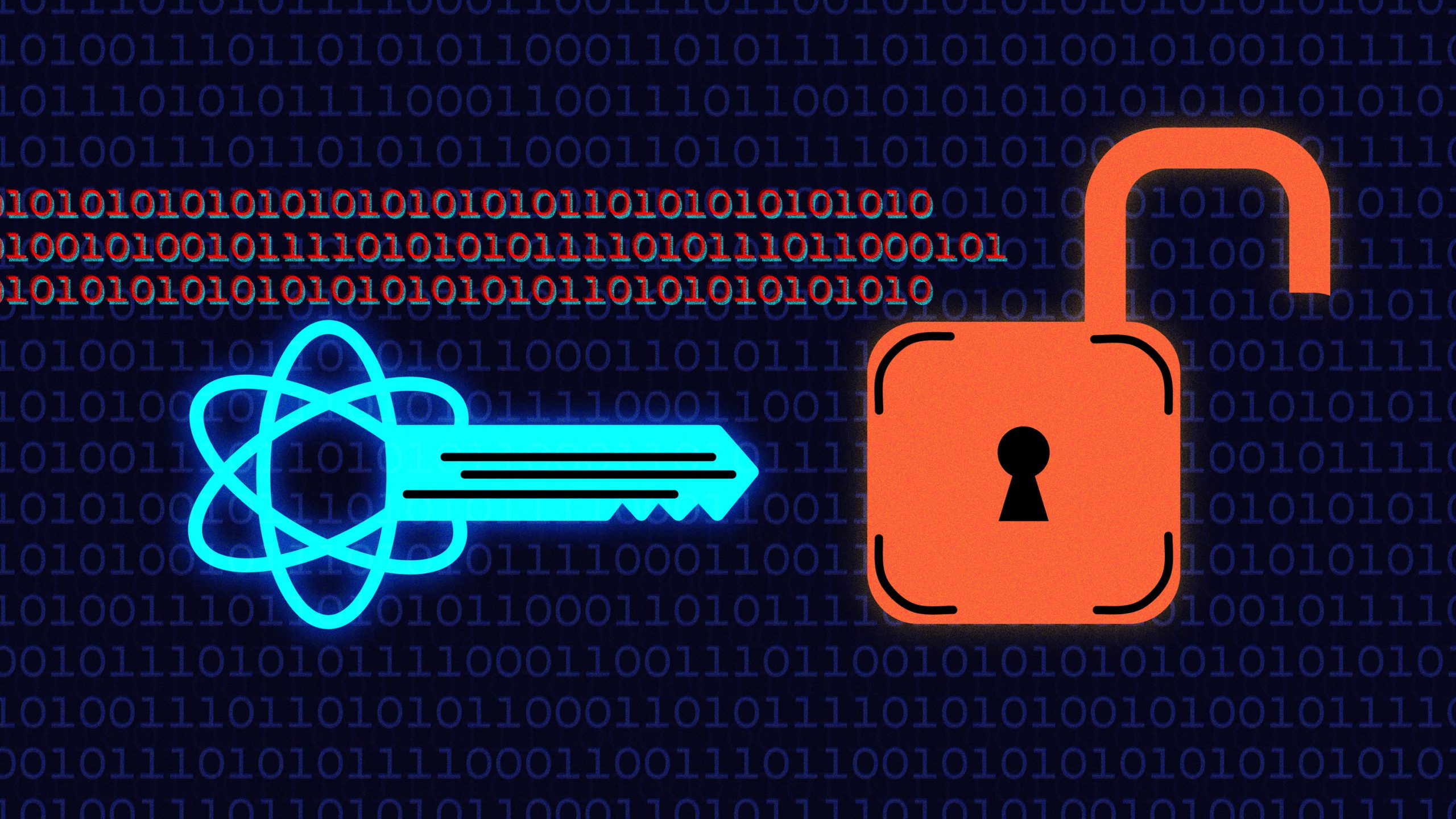Google Quantum Breakthrough Sparks New Concerns for Bitcoin Security
28.05.2025 11:00 2 min. read Alexander Stefanov
A breakthrough from Google’s quantum division is reshaping assumptions about the future of cybersecurity—and may bring the cryptographic foundations of Bitcoin closer to vulnerability than previously believed.
In a newly released scientific paper, Google researchers revealed that quantum computers could now theoretically break RSA-2048 encryption using fewer than 1 million qubits, a staggering reduction from their earlier 2019 estimate, which required 20 million. The updated model suggests this process could be completed in under a week—far sooner and with far fewer resources than the world anticipated.
Lead researcher Craig Gidney attributed the leap to improvements in two key areas: faster quantum algorithms and a more compact, efficient method for error correction. A notoriously complex operation known as “modular exponentiation” was made twice as fast, and a technique called “magic state cultivation” dramatically reduced the physical resources required to maintain quantum stability during computations.
While these theoretical systems remain years away from deployment—today’s top quantum computers have nowhere near the qubit count needed—the research signals that quantum threats are no longer just a futuristic talking point. IBM’s most powerful machine to date, Condor, has just 1,121 qubits; Google’s own Sycamore chip operates at a mere 53.
Although Bitcoin doesn’t rely on RSA, it uses elliptic curve cryptography (ECC)—a system based on similar mathematical principles. Many cryptographers believe that once RSA becomes obsolete under quantum pressure, ECC may follow closely behind. Bitcoin’s 256-bit encryption is still considered safe for now, but the accelerating pace of quantum development suggests its defenses could eventually be compromised.
The news isn’t an immediate cause for panic—but it is a clear sign. Institutions relying on current encryption standards will need to rethink their long-term security infrastructure. And for Bitcoin and the broader blockchain ecosystem, the race toward quantum-resilient cryptography just became a lot more urgent.
-
1
Metaplanet Raises $515M in First Step Toward Massive Bitcoin Accumulation
25.06.2025 20:00 1 min. read -
2
Bitcoin Hashrate Declines 3.5%, But Miners Hold Firm Amid Market Weakness
27.06.2025 21:00 2 min. read -
3
Trump-Linked Truth Social Pushes for Bitcoin-Ethereum ETF as Crypto Strategy Expands
25.06.2025 19:00 2 min. read -
4
Bitcoin’s Price Closely Mirrors ETF Inflows, Not Corporate Buys
26.06.2025 11:00 2 min. read -
5
Crypto Company Abandons Bitcoin Mining to Focus Entirely on Ethereum Staking
26.06.2025 20:00 1 min. read
Coinbase Strengthens DeFi Push With Opyn Leadership Acquisition
Coinbase has taken a major step toward expanding its decentralized finance (DeFi) presence by bringing onboard the leadership team behind Opyn Markets, a prominent name in the DeFi derivatives space.
Bitcoin ETFs See $1B Inflow as IBIT Smashes Global AUM record
Spot Bitcoin ETFs recorded a massive influx of over $1 billion in a single day on Thursday, fueled by Bitcoin’s surge to a new all-time high above $118,000.
Grayscale Urges SEC to Allow Multi-Crypto ETF to Proceed
Grayscale Investments has called on the U.S. Securities and Exchange Commission (SEC) to allow the launch of its multi-crypto ETF—the Grayscale Digital Large Cap Fund—arguing that further delays violate statutory deadlines and harm investors.
Bitcoin Outlook: Rising U.S. Debt and Subdued Euphoria Suggest More Upside Ahead
As Bitcoin breaks above $118,000, fresh macro and on-chain data suggest the rally may still be in its early innings.
-
1
Metaplanet Raises $515M in First Step Toward Massive Bitcoin Accumulation
25.06.2025 20:00 1 min. read -
2
Bitcoin Hashrate Declines 3.5%, But Miners Hold Firm Amid Market Weakness
27.06.2025 21:00 2 min. read -
3
Trump-Linked Truth Social Pushes for Bitcoin-Ethereum ETF as Crypto Strategy Expands
25.06.2025 19:00 2 min. read -
4
Bitcoin’s Price Closely Mirrors ETF Inflows, Not Corporate Buys
26.06.2025 11:00 2 min. read -
5
Crypto Company Abandons Bitcoin Mining to Focus Entirely on Ethereum Staking
26.06.2025 20:00 1 min. read


